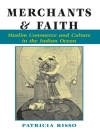In the immediate aftermath of the First World War, Upper Silesia was the site of the largest formal exercise in self-determination in European history, the 1921 Plebiscite. This asked the inhabitants of Europe’s second largest industrial region the deceptively straightforward question of whether they preferred to be Germans or Poles, but spectacularly failed to clarify their national identity, demonstrating instead the strength of transnational, regionalist and sub-national allegiances, and of allegiances other than nationality, such as religion. As such Upper Silesia, which was partitioned and re-partitioned between 1922 and 1945, and subjected to Czechization, Germanization, Polonization, forced emigration, expulsion and extermination, illustrates the limits of nation-building projects and nation-building narratives imposed from outside. This book explores a range of topics related to nationality issues in Upper Silesia, putting forward the results of extensive new research. It highlights the flaws at the heart of attempts to shape Europe as homogenously national polities and compares the fate of Upper Silesia with the many other European regions where similar problems occurred.
James (King’s College London, UK) Bjork & Tomasz (University of St Andrews, UK) Kamusella
Creating Nationality in Central Europe, 1880-1950 [PDF ebook]
Modernity, Violence and (Be) Longing in Upper Silesia
Creating Nationality in Central Europe, 1880-1950 [PDF ebook]
Modernity, Violence and (Be) Longing in Upper Silesia
购买此电子书可免费获赠一本!
格式 PDF ● 网页 252 ● ISBN 9781317279679 ● 编辑 James (King’s College London, UK) Bjork & Tomasz (University of St Andrews, UK) Kamusella ● 出版者 Taylor and Francis ● 发布时间 2016 ● 下载 3 时 ● 货币 EUR ● ID 4877782 ● 复制保护 Adobe DRM
需要具备DRM功能的电子书阅读器












